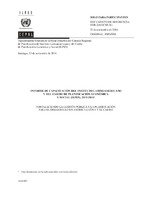- Biblioteca CEPAL
- Biblioguias
- ILPES_en
- Planning for development in the 60 years of ILPES
- Capacity building for planning and public management
Planning for development in the 60 years of ILPES
Capacity building for planning and public management
Since its beginnings, ILPES has supported the region in building institutional and human capacities for planning and public management in the public sector, adapting itself to the changing needs of development, responding to emerging demands, and offering a space for learning, reflection, analysis, and the formulation of proposals to address Latin American and Caribbean development problems. Thousands of students have passed through its classrooms and have carried the thinking and work of ECLAC and the Institute back to their countries. Many of these professionals have held and continue to hold high-level positions of responsibility in their governments and other entities. The evolution of the objective, the methodological approach, and the substantive content of the training component of ILPES reflects this process of adaptation, as well as the evolution of ECLAC's understanding of development in Latin America and the Caribbean.
The origin of the Institute’s training activities can be traced back to 1952, when ECLAC began its long-running series of courses on economic development for professionals in the region. This pioneering effort had a major impact on Latin America and the Caribbean from the outset, serving to disseminate ECLAC’s own body of theory on development and planning techniques that would be registered in the history of economic thought as the first systematic contribution from Latin America. This labour also greatly influenced the region's universities, which explicitly incorporated in their curricula subjects inspired by ECLAC’s training on development problems. In 1962, ILPES incorporates this experience and assumes the responsibility of continuing and enriching it, in carrying out its mandate with respect to capacity building: "to broaden the technical knowledge of public sector officials and specialists through programmes in courses and direct in-service training" (Resolution 220 (AC. 52)).
Featured publications
-
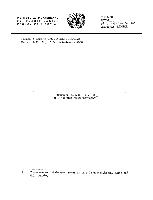 Bases de la reorientación del programa de capacitación
by
Call Number: INST/L.14Publication Date: 1968-11
Bases de la reorientación del programa de capacitación
by
Call Number: INST/L.14Publication Date: 1968-11 -
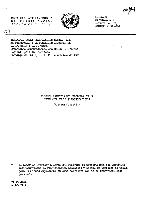 Algunos aspectos del problema de la enseñanza de la planificación
by
Call Number: INST/S.6/L.17Publication Date: 1971-10
Algunos aspectos del problema de la enseñanza de la planificación
by
Call Number: INST/S.6/L.17Publication Date: 1971-10 -
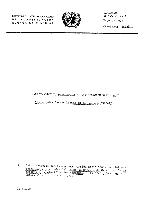 Capacitación en desarrollo y planificación regional
by
Call Number: INST/72/REV.1Publication Date: 1974-05
Capacitación en desarrollo y planificación regional
by
Call Number: INST/72/REV.1Publication Date: 1974-05
-
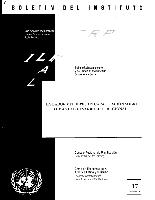 La labor del ILPES en capacitación sobre temas del desarrollo "regional"
by
Call Number: LC/IP/L.262Publication Date: 2005-11Boletín del Instituto - ILPES No. 17
La labor del ILPES en capacitación sobre temas del desarrollo "regional"
by
Call Number: LC/IP/L.262Publication Date: 2005-11Boletín del Instituto - ILPES No. 17 -
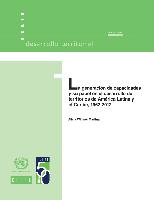 La generación de capacidades y su papel en el desarrollo de territorios de América Latina y el Caribe, 1962-2012
by
Call Number: LC/IP/L.324; LC/L.3566Publication Date: 2012-12
La generación de capacidades y su papel en el desarrollo de territorios de América Latina y el Caribe, 1962-2012
by
Call Number: LC/IP/L.324; LC/L.3566Publication Date: 2012-12

